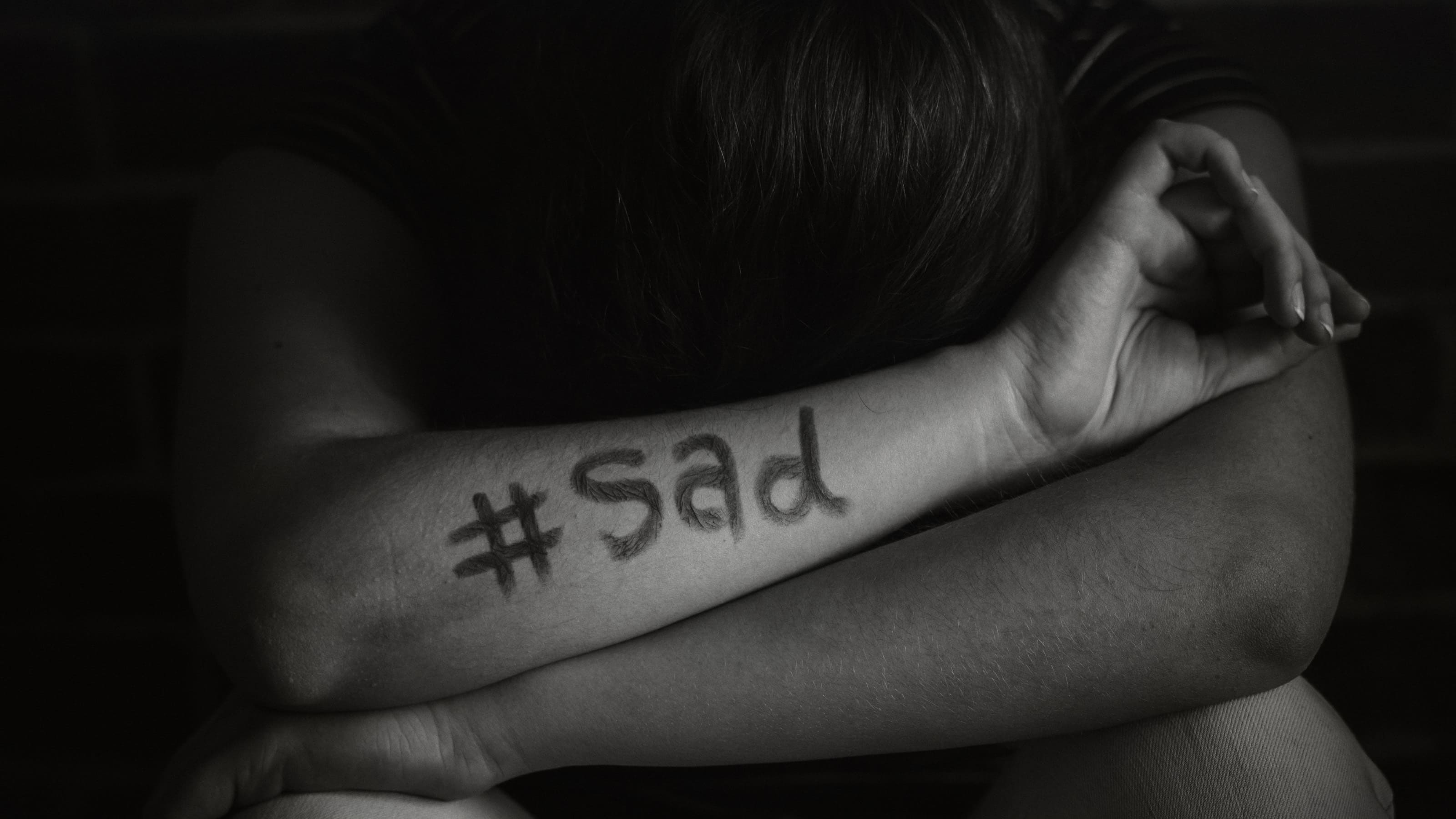Suicide Grief: Coping with a Loved One's Suicide
When a loved one dies by suicide, the "whys," "what ifs," and "if onlys" echo through your mind like footsteps in an empty hallway. Suicide grief carries a weight heavier than any other form of loss. It comes with a complex tangle of emotions that can leave survivors of suicide feeling isolated in their pain, searching for answers that may never come. If you're reading this, you might be carrying this heavy burden. Perhaps you're struggling with feelings that swing between profound shock, sadness, and overwhelming anger, between guilt and confusion. Know that these feelings, however challenging, are a natural part of coping with loss after suicide.
Suicide grief is unique because of its layers – the questions, the stigma, the sudden nature of the loss. While others might speak in whispers or avoid the topic entirely, we believe in breaking this silence. We know healing begins when we can acknowledge our pain, share our stories, and understand that we're not alone in this journey. This post isn't a roadmap to "getting over it" – because you don't simply get over losing someone to suicide. Instead, this is a gentle conversation about finding your way forward, one day at a time.
Why is suicide grief more complex than other types of grief?
When someone loses a loved one to suicide, the pain can be deep and confusing. Many ask questions like, “What did I miss?” or “Could I have done something to stop it?” Unlike when someone dies from an illness, suicide often comes suddenly. This surprise can traumatise family and friends and leave them feeling unprepared.
Survivors of suicide often feel a mix of emotions. They might feel abandoned, thinking that their loved one chose to leave them behind. Anger is also common; they may be upset with the person who died or even with themselves for not seeing the signs. These feelings make coping with the loss much harder. It’s crucial to talk about these emotions and seek support, as they are part of healing from such a tragic event.
Grieving is a personal journey, and everyone handles it differently. If you've lost someone in a complicated way, like through suicide, it can be even harder to cope. There’s no correct way to grieve. You shouldn’t feel pressured by a specific timeline. Remember that life may never return to how it was before the loss. Instead, focus on finding ways to live with the memory of your loved one and adjust to this new reality.
Understanding the complex emotions of suicide grief
Grieving the loss of someone to suicide can evoke complicated emotions. It's important to acknowledge that there is no right or wrong way to feel or react in such circumstances. You may experience:
1. Shock: A sense of disbelief that the loss has occurred
2. Numbness: Feeling emotionally detached or empty
3. Hopelessness: A belief that life will never improve or that carrying on is impossible
4. Suicidal Thoughts: Contemplating self-harm or feeling overwhelmed by despair
5. Anger: Directed towards others, the world, yourself, or the person you have lost
6. Depression: Experiencing profound sadness and a lack of motivation
7. Anxiety: Feelings of panic or overwhelming worry about the future
8. Isolation: A sense of being alone in your grief, as if no one understands your pain
9. Psychological trauma or post-traumatic stress disorder (PTSD): Struggling with the emotions that result from the event
Coping with suicidal grief
1. Allow yourself to feel and express your emotions as they surface
It’s normal to want to hold yourself together after losing a loved one. You might feel overwhelmed by sadness and other complex emotions due to suicide grief. But ignoring these feelings won’t help; they will still be there, waiting for you. Ensure you face the emotions as they come, even the tough ones. When you let yourself feel the pain of losing someone special, it can help you heal. It is part of the grieving process. If you allow yourself to cry and express what you’re feeling, over time, the weight of that pain gets lighter. Coping with loss is not easy, but remember, it's okay to feel sad, angry, or confused. Talking to someone or sharing your feelings can also help. You’re not alone in this journey. Things can get better if you give yourself the chance.

2. Journal or write a letter to your loved one
Keeping a journal can be helpful, especially when you're going through tough times. Even if you don’t feel ready to share your feelings with others, writing them down can help you let out some of that pain. It’s a good way to cope with what you’re feeling. You might also want to try writing a letter to your loved one. In this letter, you can tell them everything you couldn't say when they were around. It can help you find closure and make sense of your feelings. Remember, everyone grieves in their way. Take your time. Journaling and writing letters are simple but powerful coping strategies to support you through grieving. So grab a pen and paper, and start expressing yourself. It can lighten your heart and help you heal.
3. Suicide grief is not straightforward
Prepare to have good days and bad days in no particular order. Healing from loss is not always easy and doesn’t happen in a straight line. Some days, you might feel okay and able to cope with your grief. But then, something can trigger strong emotions. It could be your loved one's belongings or their birthday that brings back painful memories. It’s normal to feel trauma and survivor guilt during this time. You might wonder why you’re still hurting or if you could have done something differently. Just remember, it’s okay to feel this way. Allow yourself to grieve and take your time. Healing is a journey, and be gentle with yourself along the way.
4. Take good care of your health
Dealing with loss can be difficult and can affect both your mind and body. It’s of utmost importance to take care of yourself during these times. Try to eat good, healthy food and exercise a bit every day. Getting enough sleep is also crucial, so rest well. Spending time outside, especially in nature, can help lift your spirits.
You might think drugs and alcohol will help you forget your pain, but that won't help in the long run. Instead, focus on emotional healing and finding healthy ways to cope with your grief. Talk to friends or family about how you feel; it can lighten your heart. Remember, you're not alone in this journey of navigating grief. Take small steps each day toward feeling better.
5. Remember and honour your loved one's memory
When we think about those we’ve lost, it’s important to remember that their lives were more than just their last moments. We should honour our loved ones by celebrating their good times and achievements. Create memory boxes filled with photos, stories, and little things that remind you of them. Talk about your memories with family and friends who also loved them. This way, you can keep their spirit alive in a positive way. Your loved one's last action doesn't define their life. Instead of focusing only on their passing, share the joyful moments. Remember, honouring the deceased involves highlighting the happiness they brought into your life. Cherish those beautiful memories and keep their legacy alive by sharing love and laughter as you remember them.
6. Social media is a double-edged sword. Use it carefully
When you’re navigating grief after losing someone, it’s natural to want to share your feelings online. Social media can be a way to connect with friends and find support. However, be careful about what you post. While some people will offer comfort, others might leave hurtful comments that can make things harder for you. Remember that everyone has their opinions, and not all of them will be helpful. Focus on coping with your loss in a way that feels right for you. Consider sharing your feelings with close friends or family, where you can find real support. Sharing your journey is okay, but do it wisely. Take care of your heart and protect yourself from negativity as you heal. You deserve to find peace and comfort while navigating grief.
7. You may need to join a support group
If you’ve lost someone to suicide, joining a support group can help. Look for a group that focuses on bereavement support for people who have gone through the same thing. Being around others who understand what you’re feeling can be comforting. In these groups, you can share your feelings openly without worrying about being judged or feeling uncomfortable and awkward. It’s okay if you don’t want to talk much at first; listening to others can also be helpful. You’ll hear different stories that can give you hope and remind you that you’re not alone in your grief. Talking with people who truly understand your pain can help you heal and find strength. So consider finding a support group near you. It could be a good step toward feeling better and coping with your loss.
8. Consult with a therapist or grief counsellor
If you’re having a hard time coping with suicide grief and loss, it’s time to seek help. Talking to a mental health expert who knows about grief can make a big difference. They can offer you bereavement counselling, which focuses on helping you deal with your feelings after losing someone close to you. These professionals have coping mechanisms to help you manage sadness and pain. It’s okay to reach out for mental health support, as everyone experiences grief differently. Finding someone who understands what you’re going through can be comforting. You don’t have to go through this alone; many people are ready to help you heal. So, if you feel overwhelmed, consider speaking with a counsellor who specialises in suicide grief. They can guide you and provide the tools to navigate your grief. Remember, it’s okay to ask for help!
Dos and don'ts when supporting someone who's going through suicide grief
Dos
When discussing a person's death, it is proper to use sensitive language. Phrases like “died by suicide,” “took their life,” or “chose to end their life” are recommended.
If you feel uncomfortable or awkward talking about suicide, admit you don't know what to say or do, but you're willing to give them listening ears.
If they're willing, encourage the person to talk about their loved one and the memories they shared.
You can assist with practical tasks like grocery shopping, meal preparation, and notifying others about the death. Additionally, offering help with funeral arrangements can be a significant support during this difficult time.
Allow them to express their pain and loss without judgment.
Don'ts
Avoid using the phrase "committed suicide," as it suggests that suicide is a criminal act. It can reinforce stigma and increase feelings of isolation for those who are grieving.
Do not seek explanations or speculate on the reasons behind someone's suicide. Instead, focus on being supportive by listening and letting the grieving person guide the discussion.
Avoid labelling the individual who died by suicide as selfish, weak, or crazy. Suicide often stems from intense emotional distress rather than a flaw in their character.
Don't offer platitudes like “they’re at peace now” or “they’re in a better place,” as these empty reassurances don't bring comfort. Instead, they can alienate the grieving person, leaving them even more isolated.
Don't be impatient. Be understanding, as someone grieving a suicide may need to discuss loss repeatedly. Allowing those grieving to express feelings without interruption or judgment can aid their healing process.
Conclusion
Dealing with the loss of a loved one to suicide is a heavy burden that many people carry. It is a difficult path that requires time and understanding. Remember that you are not alone in this journey of grief. Seeking support from friends, family, support groups, or professional counsellors can help ease the pain and provide comfort. Sharing your feelings and memories can also be a way to honour the person you lost. If you or someone you know is struggling, do not hesitate to seek help; your well-being matters.



